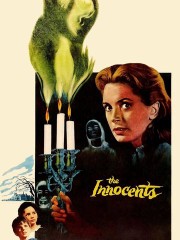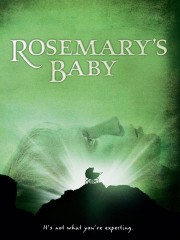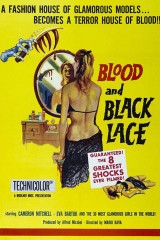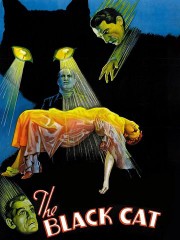
(Photo by Victor Chavez/Getty Images)
For kids who grew up in the 1980s, Joe Dante‘s name should be a familiar one. The director, who earned his stripes cutting trailers for Roger Corman early in his career, breathed life into fan favorites like Explorers, Innerspace, The ‘Burbs, and of course, the beloved horror comedy Gremlins. Among a long list of other credits, Dante was also the man at the helm of the original Piranha and the cult werewolf flick The Howling, and he contributed a segment to Twilight zone: The Movie, alongside John Landis, George Miller, and Steven Spielberg.
With Halloween coming up, Dante spoke to RT about his Five Favorite Horror Films, admitting “that’s always a tricky question, because there are so many more than five.” Thankfully, he agreed to narrow down his list, and he also spoke to us about why the genre appealed to him as a director, what it takes to make an effective horror comedy, and what he thinks about the current wave of horror filmmakers.

From my own personal tastes, my favorite horror film, I think, is a movie called The Innocents, which is based on this Henry James novel Turn of the Screw. The British picture from 1961 with Deborah Kerr as the repressed governess who goes to the faraway estate to take care of these kids who are seemingly possessed by the ghosts of the people who used to haunt the place. It’s a beautifully made movie and it’s not a rock-em’ sock-em’ movie, but its got really great psychological chills in it. And of course, there’s the eternal question as to whether the governess is imagining these things, or are they really happening? And it’s left kind of ambiguous, and it’s a really artful movie. I don’t think it was ever a particularly popular movie. I think a movie like The Haunting, which is somewhat similar, was a little bit more accessible to people than The Innocents, but, for my money, it’s, I think, the best horror film I’ve ever seen.

You know, I’d have to give a shout out to Rosemary’s Baby, which is not only a great horror film, but probably the most faithful adaptation of a book that I’ve ever seen on screen. The realistic ambience of New York in the ’60s is so palpable that it makes all of the horror tropes seem much more believable. We have a heroine we can identify with, and are the people around her all witches, or is she imagining it? Once again, there’s always a psychological component to a really good horror film. I don’t know if I’ve ever seen a film better directed than Rosemary’s Baby.
RT: Horror or otherwise?
Yeah, it’s one of the best-directed movies ever. There’s nothing wrong with it. You can’t really point to, “Oh, that doesn’t work.” No, it all works. It’s quite brilliant.
To go back to the ’30s, which is the movies I saw when I was growing up on television — it was one that they never showed, because it was lost for years and it was by James Whale. It’s called The Old Dark House, 1932. It’s currently about to be reissued on Blu-ray. For years, all you could see were these sort of beat-up prints I think they found in the mid-’60s, and they had been lost, because of a remake and some rights issues and stuff. Now, it’s sort of come back, and it’s got a great cast of Charles Laughton, Gloria Stuart, Boris Karloff, Melvyn Douglas, Raymond Massey.
It’s the classic “travelers stranded in the haunted house and the bridge has washed out”, but it’s the template for all the movies that followed it. It’s still one of the more watchable and disturbing movies from that period. And it’s a shame that it isn’t better known; it never got television distribution, and it wasn’t included in the package of Universal horror pictures because it wasn’t in their library anymore. It’s a chance, I think, for people to catch up with it now. I’m a big James Whale fan, and this might be his best picture.
RT: How were you able to see it, initially?
I got a 16mm print. I used to collect 16mm movies, and collectors very often were the ones who found the gems that weren’t in the mainstream. Now, of course, it’s all on video. I’ve seen a clip of the restoration and it really looks like it was shot yesterday. It’s really great.

One of my favorite filmmakers is an Italian director named Mario Bava. His most famous movies have titles like Black Sunday and Black Sabbath and all that, but the one that really was astonishing at the time was a picture called Blood and Black Lace, which is one of the most gorgeously lit Technicolor movies I’ve ever seen. And it’s a whodunit kind of thing — a murderer in a fashion house and models are being killed in various gruesome ways. This is the early ’60s when you could get away with a lot more in the way of explicitness than you had been able to before, and these movies still basically played grindhouses. But it’s such a beautiful movie to look at, and the juxtaposition of beauty and death is really perverse in it. It runs through all his works, but in this particular movie, which I think is one of Tarantino’s favorites, it really comes to the fore. It’s a very entertaining picture, and very violent.
Bava was completely unknown when he was actually alive. Almost nobody except, you know, the most extreme film buffs ever saw those movies. But now, as often happens to people when it’s too late for them to enjoy it, he’s now revered, and people see his movies who didn’t even know they existed before.

Growing up on movies on TV, part of the Universal package was a very, very weird and creepy movie called The Black Cat. Which is ostensibly based on Edgar Allen Poe’s story, but wasn’t. It’s a devil-worshiping movie with Karloff and Lugosi, and it’s directed by a guy named Edgar Ulmer, who was a very promising European director whose career ran afoul of the fact that he slept with the boss’s niece or something like that and got, basically, blackballed by the major studios. But before he did that, he was able to make this very, very dark and very dreamlike horror movie, which only runs about 65 minutes. It’s an art deco nightmare, and it’s got all these very perverse ideas and concepts running through it. It’s like watching somebody else’s bad dream.
It’s really a wonderful picture. I mean, Karloff has given better performances. The Body Snatcher is probably his best performance outside of Frankenstein, and that was on my list, but between The Body Snatcher and The Black Cat, I have to go with The Black Cat, because it’s so off-beat and kind of unique. There aren’t a lot of other movies like it.
The interesting thing is, now these movies are actually available to see. When I was growing up, you had to wait until two o’clock in the morning on Friday; they were going to run some movie, and if you didn’t watch it then, they weren’t gonna run it again for another year and a half or more. And you’d fall asleep anyway, you know. It was so hard to see these things. You had to really seek them out.
The Mario Bava movies, I had to go to the lowest dives, the crappiest grindhouses, to see these things, and often the prints were all beat up. But now, all this stuff is available, and it looks great. I just don’t think film lovers realize what a paradise they’re living in right now. [laughs] For those of us who really had to go the distance to seek these things out, it was really quite arduous.
Ryan Fujitani for Rotten Tomatoes: How did you first become interested in horror movies? Was it as simple as just seeing them on TV as a kid?
Joe Dante: It was really watching them as a kid. It was probably because you could see things in those movies that you couldn’t see in other movies, and they weren’t like what you saw when you went out on the street. They brought you into a different world, and maybe a world you didn’t want to live in for a long time, which is also good. And I got the usual nightmares. I imagined that there were giant spiders under my bed and everything, and my parents would say, “If these movies scare you so much, why do you see them? Why do you watch them?” And I don’t know. I can’t help myself. [laughs] And then, of course, ironically I ended up growing up to make them.
RT: How and when did you know that you wanted to make horror movies?
Dante: Well, I didn’t even realize that I wanted to make movies until I was quite a bit older. I was gonna be a cartoonist, and when I came out to California to work for Roger Corman making trailers, I realized that it was possible to actually make a movie, because when you make trailers you have to cut down a scene into the tiniest components of what makes it, and you sort of get a sense of, “Oh, you don’t need this shot, but you can use this shot and this leads to this.” And so, when I got a chance to direct a movie, I was much better prepared than, for instance, a writer, or an actor who doesn’t think editorially.
So I found that I enjoyed it, because it’s a very communal thing, making movies, because everybody’s involved. And then, of course, I gravitated to horror movies, because the second movie I was offered was a pictured called Piranha, which was a science fiction horror film. From then on, I did The Howling, which is a werewolf movie, and then I did Gremlins, and pretty much I started to get typed. But, I didn’t mind getting typed, because it was a genre that I liked. It wasn’t like I thought, “Well, I’m gonna be the next James Whale,” or something. There was really no need for that anymore. I was hoping to have a more varied career, and I’ve been lucky. I’ve been able to make comedies and things.

Joe Dante on the set of Twilight Zone: The Movie, 1983 (Photo by Warner Bros. courtesy Everett Collection)
You know, it’s a genre that’s always been close to my heart. What amazes me about it is that it was always so reviled, and it was always considered so second-rate, and now it’s one of the few genres that has lasted all this time and is now a tentpole genre. Now, it’s like, everybody knows that if we make a horror film, people are gonna go see it. So it’s become a staple. It was so funny, because zombie movies, I mean, nobody would walk across the street to see a zombie movie when I was kid. And now, it’s like a cash cow.
RT: What do you think about this new wave of contemporary horror, stuff like It Follows and The Witch?
Dante: Well, I think it’s really good. For a while the genre was laying kind of fallow, because after a certain point it’s like, “Well, now what do we do? We’ve done everything. The audience knows all the cliches. They know all the gimmicks. They know all the tricks.” And for a little while, people were finding their way, like, “How are we gonna do this? We can’t just keep making it the same movie over and over.”
Now there are people coming who actually have different takes on it and are presenting the stories in different ways. You know, female characters in particular have improved. And these movies, I’ve always believed, reflect the society that they’re in. I think you can go back and look at horror movies and you can really get an idea of what the society was like at the time and what the politics were. You know, when Night of the Living Dead came out in the middle of the Vietnam war, people started to notice that there was something going on. And now, I think you can go back to the ’30s, even the ’20s, and the German silents, and you can sort of get a sense of what the world was around them. It’s really fascinating.
RT: Do you think that’s one of the keys to making a good horror film? Reflecting the Zeitgeist, in a way?
Dante: I think so. I think there’s a lot of fear in the Zeitgeist, and if the idea is to instill fear in people, you have to figure out what’s scaring them right now. What’s the scariest thing going for them? And how can you exploit that? Now, with the current political situation and even the world political situation, people are very uneasy. This clown movie IT opened up to huge response, which I was kind of… You know, I looked around me before it opened, and I knew it had been done before for TV, but it just seemed to me this is probably going to make a killing, because people want to escape into that kind of a world as opposed to coming out of the theater and having to face Kim Jong-un and Donald Trump and all the other things that are going on.

Joe Dante on the set of Gremlins, 1984
RT: Your films in particular have often combined elements of horror with elements of comedy. Gremlins, for example, is frequently hailed as one of the most iconic examples of something that could be considered a “horror comedy.” For you, what’s the trick to blending the funny with the scary?
Dante: Well, it depends on what you mean by “scary.” There’s different kinds of scares. There’s jump scares, then there’s the hairs-on-the-back-of-your-neck scares, which are rare, but always effective. And, I mean, my generation grew up on Abbott and Costello Meet Frankenstein, you know? We’d seen the Frankenstein movies, and we took them seriously. Then all of a sudden, here was one that didn’t, except it did, because even though the comedians had the comic stuff, all the horror stuff was treated pretty straight. And it was pretty well-produced and pretty well-presented, and atmospheric. I think that there’s always been a tradition of horror comedies, but they’re always pretty atmospheric. Whether Bob Hope is in them or Martin and Lewis or whoever. You have to take the horror stuff pretty seriously, or else nobody takes anything seriously.
There’s always an element of absurdity in horror story. You have to find a way to channel that, so that people don’t laugh in the wrong places. And I think that’s one of the reasons that people like to lard their horror with some humor, because usually these stories are, taken at face value, pretty unbelievable, so in order to buy into that world, you have to give it some semblance of the world that the people in it live in. Which is why Bob Hope would be making wisecracks all through The Cat and the Canary, and that was all part of the fun. But there are a lot of horror films that don’t have any humor in them whatsoever and can be very grim, and that doesn’t mean they’re any less effective, but I prefer my horror with a little bit of humor.
RT: Do you do anything special to celebrate Halloween?
Dante: Well, I usually watch horror movies. [laughs] But it’s fun when the kids come. You know, the juvenile blackmail with the, “Give us candy or we’re gonna throw toilet paper all over your house.” I can get behind that.